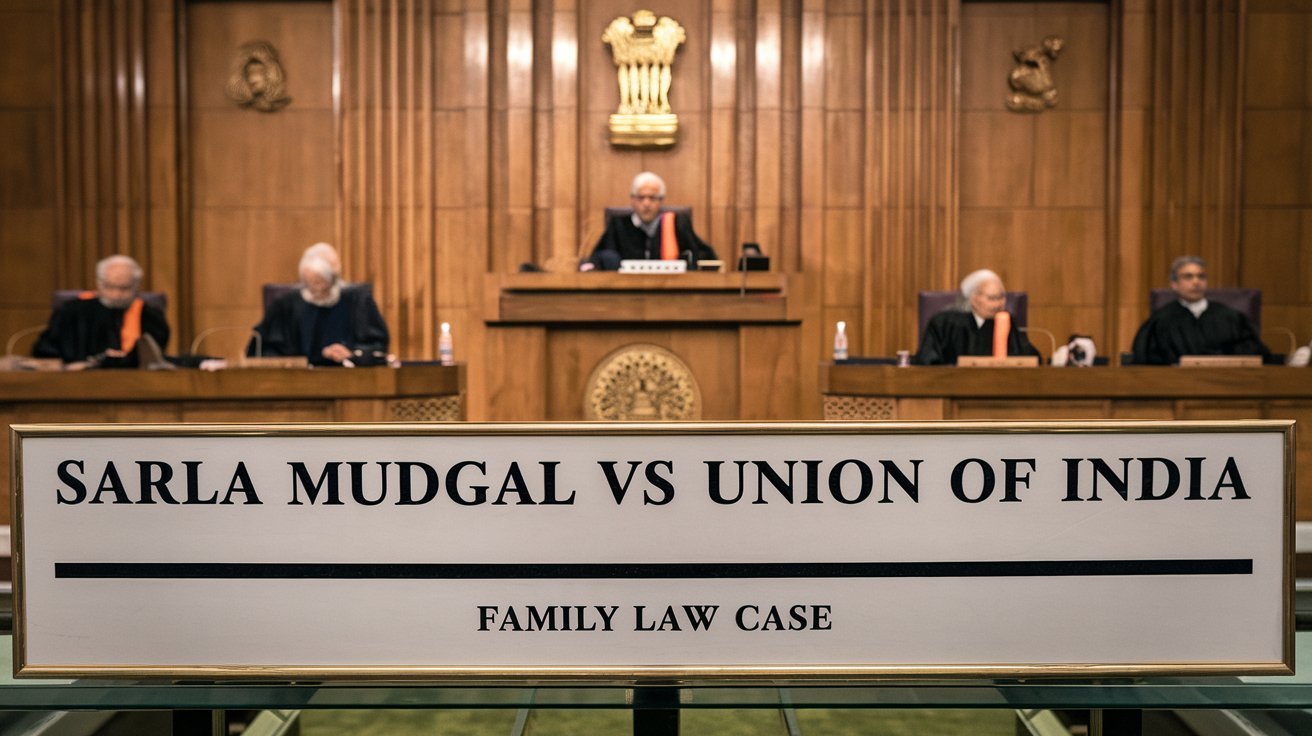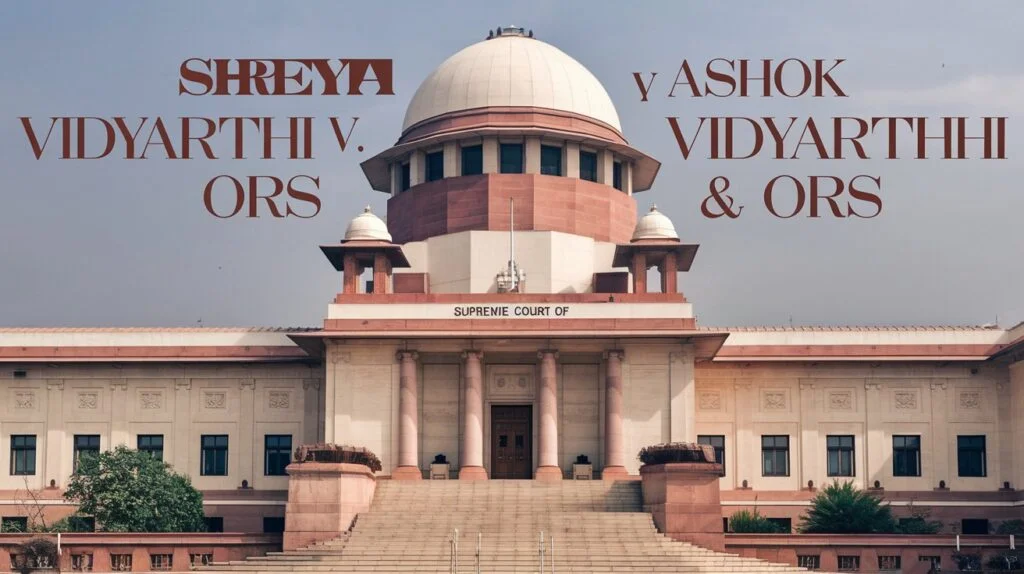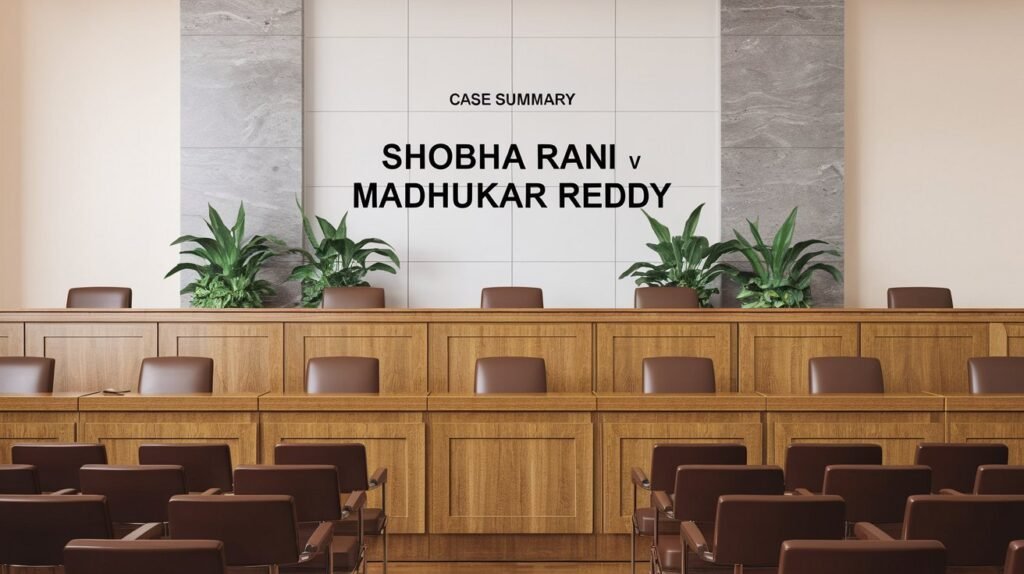Sarla Mudgal vs Union of India 1995 (Case Summary)

In the Sarla Mudgal vs. Union of India case, the Supreme Court addressed the critical issue of religious conversion and its impact on marriage under personal laws. This landmark judgment brought into focus the exploitation of religious conversion as a way to bypass the stringent provisions of monogamy in Hindu law. The case also reignited the debate surrounding the necessity of a Uniform Civil Code (UCC) in India to ensure fairness and justice, especially for women.
Table of Contents
ToggleFacts of Sarla Mudgal vs Union of India
- Sarla Mudgal, the petitioner, was the first wife of a Hindu man who converted to Islam to marry another woman. The conversion was done without dissolving his first marriage under Hindu law, thereby allowing him to remarry under Muslim law, which permits polygamy. This left Sarla without legal recourse, as her husband’s remarriage under another religion did not require him to obtain a divorce.
- The legal dilemma arose when Sarla’s husband sought to exploit the flexibility of Muslim personal law while being originally bound by Hindu law, which prohibits polygamy. This practice raised important questions about the misuse of personal laws and the lack of a unified legal framework for marriage and divorce in India.
Issues framed
- Whether the conversion of a Hindu man to Islam and his subsequent remarriage under Islamic law without divorcing his first wife under Hindu law is legally valid?
- Whether such a conversion and remarriage violate the constitutional guarantees of equality and justice under Articles 14, 15, and 21 of the Indian Constitution?
Judgment of Sarla Mudgal vs Union of India
The case primarily dealt with the conflict between personal laws—Hindu law, which prohibits bigamy, and Islamic law, which allows it—and the fundamental rights guaranteed by the Indian Constitution.
The Supreme Court held that conversion to Islam solely for the purpose of contracting a second marriage without dissolving the first marriage under Hindu law was a misuse of personal laws for personal benefit. The Court emphasized that conversion does not automatically dissolve a marriage solemnized under Hindu law, and the first marriage remains valid unless legally dissolved. Thus, the second marriage was declared invalid as it violated the rights of the first wife.
The Supreme Court ruled that the remarriage of a Hindu man who converts to Islam without divorcing his first wife is not valid, as the original marriage under Hindu law is still legally binding. The Court highlighted that personal laws cannot be exploited to circumvent the rights and protections provided under the original religion. The Court also urged the need for legislative reforms and the introduction of a Uniform Civil Code to resolve conflicts arising from personal laws and to protect the rights of individuals, especially women.





